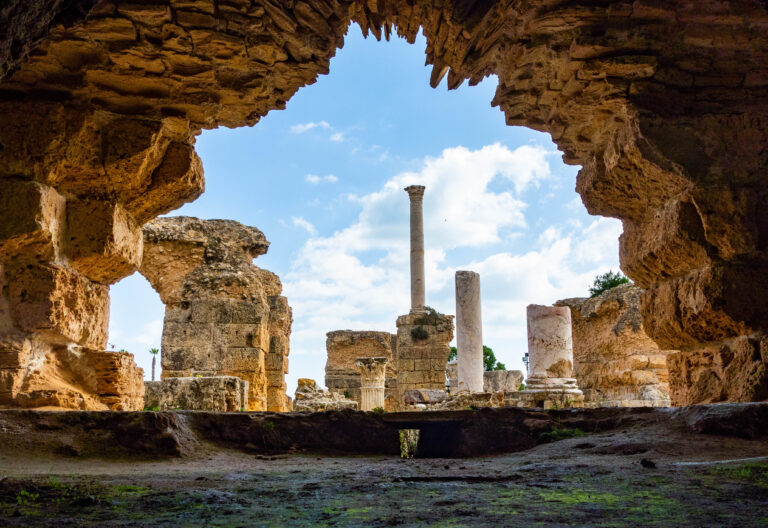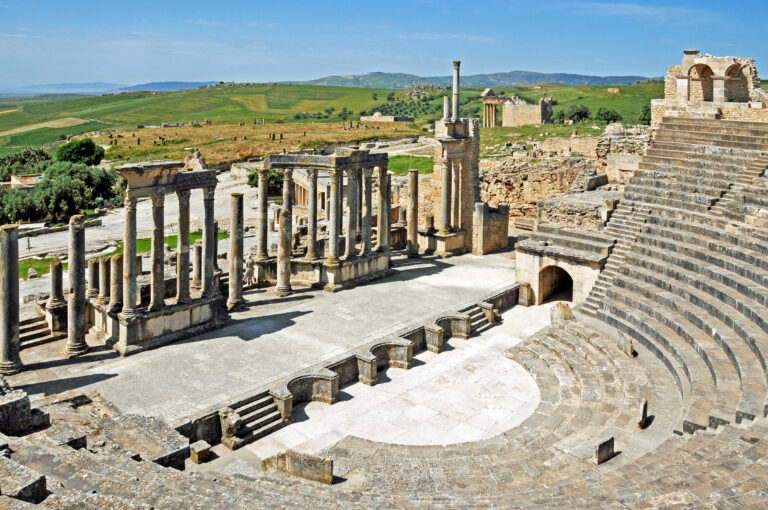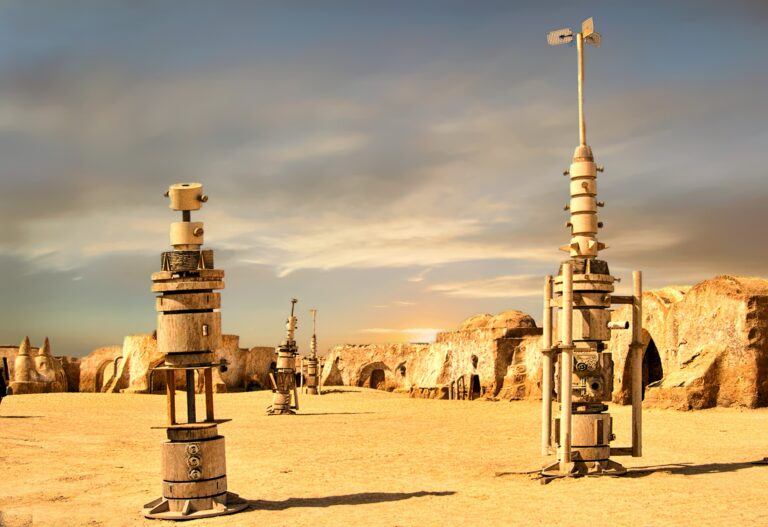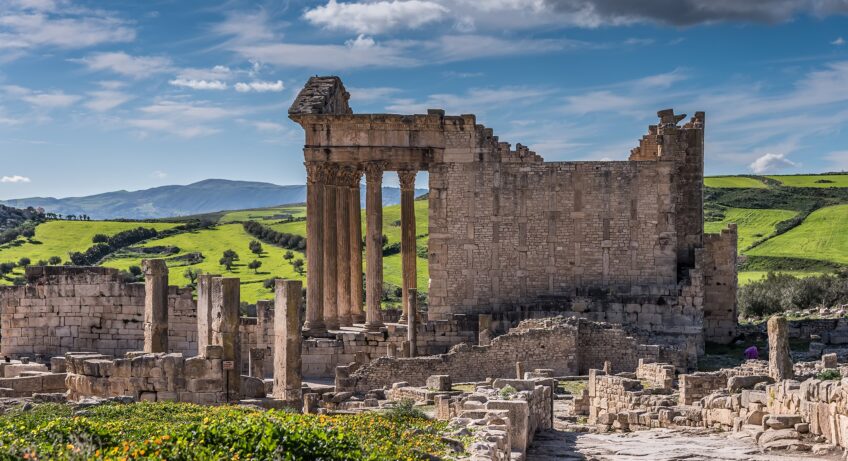Explore the awe-striking legacy
Tunisia is known for its golden beaches, sunny weather, and unique blend of Arab and Berber cultures and influence. Tunisia is a small piece of land with a lot to offer ranging from the most epic Roman ruins in Africa to crystal Mediterranean beaches, to a great Berber culture. Let’s explore more about the country. TravelJingles in conversation with H.E. Mrs. Hayet Talbi EP Bilel, Ambassador of Tunisia to India.

Tunisia has over 700 monuments. Tell us about the three must-visit places in Tunisia.
Tunisia is a country rich in history, culture, and heritage, with numerous monuments and attractions to explore. While it’s challenging to narrow down the must-visit places to just three, here are three iconic sites.
The Ancient City of Carthage located outside the capital city of Tunis, is an archaeological treasure trove in the ancient Mediterranean world. Key sites within Carthage include the Carthage National Museum, the ancient Carthage ruins, and the Punic Ports. The historic Medina of Tunis is a UNESCO World Heritage Site to visit, with landmarks like the Zitouna Mosque, which is the largest mosque in Tunisia, and the Dar Ben Abdallah Museum to learn about the city’s history. Exploring the medina’s bustling markets is an unforgettable experience, where you can shop for traditional crafts, textiles, and local cuisine. Dougga is another UNESCO World Heritage Site and an absolute must-visit for history enthusiasts. This ancient Roman city is nestled in the picturesque hills of northern Tunisia and is home to well-preserved ruins, including a Roman theatre, temples, a Capitol, and a triumphal arch. Walking through Dougga offers excellent opportunities for photography and exploration. Tunisia also boasts beautiful Mediterranean beaches, desert landscapes, and vibrant modern cities, like Tunis and Sousse. When planning your trip, be sure to explore the diverse range of experiences this North African gem has to offer.

Tunisia has the spiciest couscous in North Africa. Tell us about the gastronomy of the country.
It’s true that Tunisia is famous for its spicy cuisine; the assertion that it has the spiciest couscous in North Africa might be subjective. Tunisian cuisine is renowned for its flavourful and diverse offerings. Nonetheless, Tunisian cuisine is known for its bold flavours and generous use of spices, making it a unique and exciting culinary experience for those who appreciate spicy and aromatic dishes. Here are some key aspects of Tunisian gastronomy. Harissa is a fiery red chili paste made from chili peppers, garlic, olive oil, and spices used to add heat and flavour to various dishes. Brik is a popular Tunisian appetizer that consists of a thin pastry filled with ingredients like mashed potatoes, tuna, capers, and a raw egg that is deep-fried to create a crispy and delicious snack. Seafood forms an essential part of the cuisine. Grilled fish, fried calamari, and seafood couscous are popular choices. Tunisian cuisine includes a variety of flavorful salads like ‘Salade Mechouia’, which consists of grilled vegetables, and ‘Tunisian Tuna Salad’ made with preserved tuna, olives, and capers.

Weddings are going global. What makes Tunisia a destination for weddings?
Tunisia has recently gained popularity as a destination for weddings because of its diverse and picturesque landscapes, from sandy beaches to historical ruins. The stunning backdrops provide a variety of settings for wedding ceremonies and photography with mild winters and warm, sunny summers. This makes it an ideal destination for outdoor weddings, especially during the spring and early autumn when the weather is particularly pleasant. Tunisia tends to be more affordable for weddings and includes everything from venue rentals to catering and accommodations. Tunisia has its own set of wedding traditions and customs that can add a unique touch to the celebration, including henna parties, traditional music, and dancing. The wide range of venue options for weddings, from beachfront resorts to historical sites and even luxury desert camps in the Sahara, aligns with their vision for their special day and offers a romantic atmosphere, making the wedding day memorable.

Tunisia has dates and olive plantations as the important source for the country. Tell us about the bilateral trading opportunities the country offers.
Tunisia is one of the world’s largest producers of olive oil renowned for its quality and flavour. This presents excellent opportunities for countries to import olive oil or use it as a key ingredient in their cuisine. Dates are another major agricultural product in Tunisia that are not only sold in their natural form but are also processed into products like date paste. Tunisia has been making strides in producing organic and specialty agricultural products, including organic olive oil and dates. Apart from raw olives and dates, Tunisia also exports value-added products like olive-based cosmetics, soaps, and beauty products.
Tunisia offers bilateral trading opportunities through its olive oil and date exports, as well as its growing focus on organic and value-added products that can further enhance these opportunities and strengthen economic ties between Tunisia and its trading partners.

The famous movie series Star Wars scenes were filmed in Tunisia. Comment.
Yes, that’s correct! Several iconic scenes from the Star Wars movie series were filmed in Tunisia. The creator of Star Wars chose the country for its unique and otherworldly landscapes. Some of the notable locations in Tunisia used for filming include the troglodyte dwellings in Matmat. The town of Tataouine and its surrounding areas served as the inspiration for the name of Luke Skywalker’s home planet. The island of Djerba was used for the exterior scenes on Tatooine. These locations have since become popular tourist destinations for Star Wars fans, and many people visit Tunisia to see these iconic filming locations that has added to the magic and enduring appeal of the Star Wars franchise.

India and Tunisia value family bonds. Tell us about the similarities between Tunisia and India.
India and Tunisia, despite their geographical and cultural differences, do share some similarities. Both India and Tunisia place a significant emphasis on the importance of family. In both cultures, the family is considered the cornerstone of society, and maintaining strong family bonds is highly valued. Respect for elders is a fundamental cultural value in both India and Tunisia. Both India and Tunisia celebrate a variety of festivals and cultural events that hold deep significance. These celebrations often involve family gatherings, feasting, and rituals that strengthen cultural and social bonds. Indian and Tunisian cuisines are characterized by the rich flavours, aromatic spices, and a love for communal dining. Both Indians and Tunisians are known for their warm hospitality and are typically treated with great respect and generosity. Both the countries have a wealth of cultural traditions, including music, dance, art, and literature, which are deeply intertwined with their societies and often serve as a means of expression and identity. Both India and Tunisia are linguistically diverse countries.
India and Tunisia have their unique cultural identities and histories. These shared values and cultural traits contribute to a sense of warmth, community, and connectedness within their societies.

